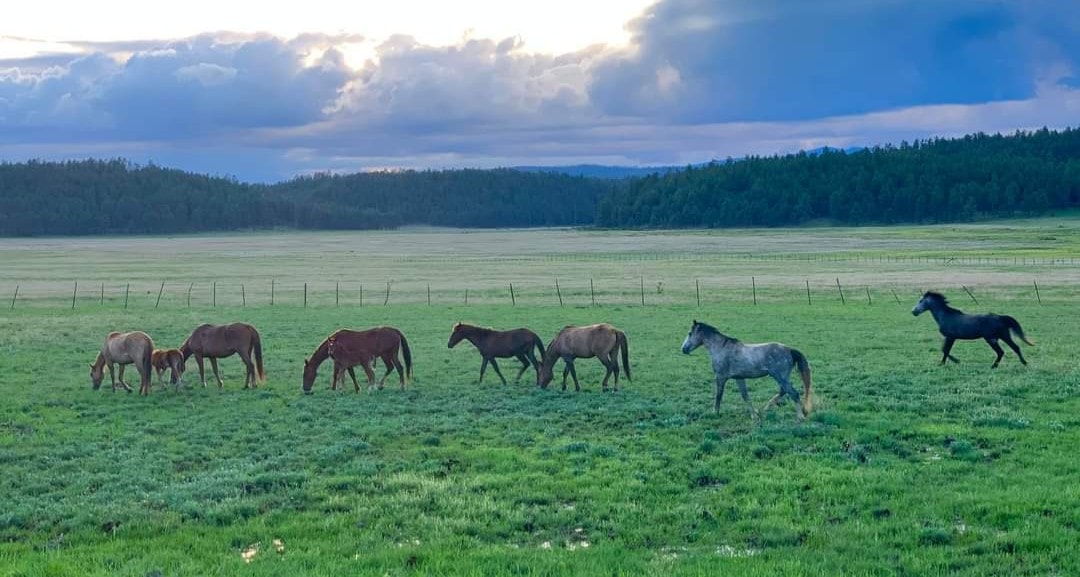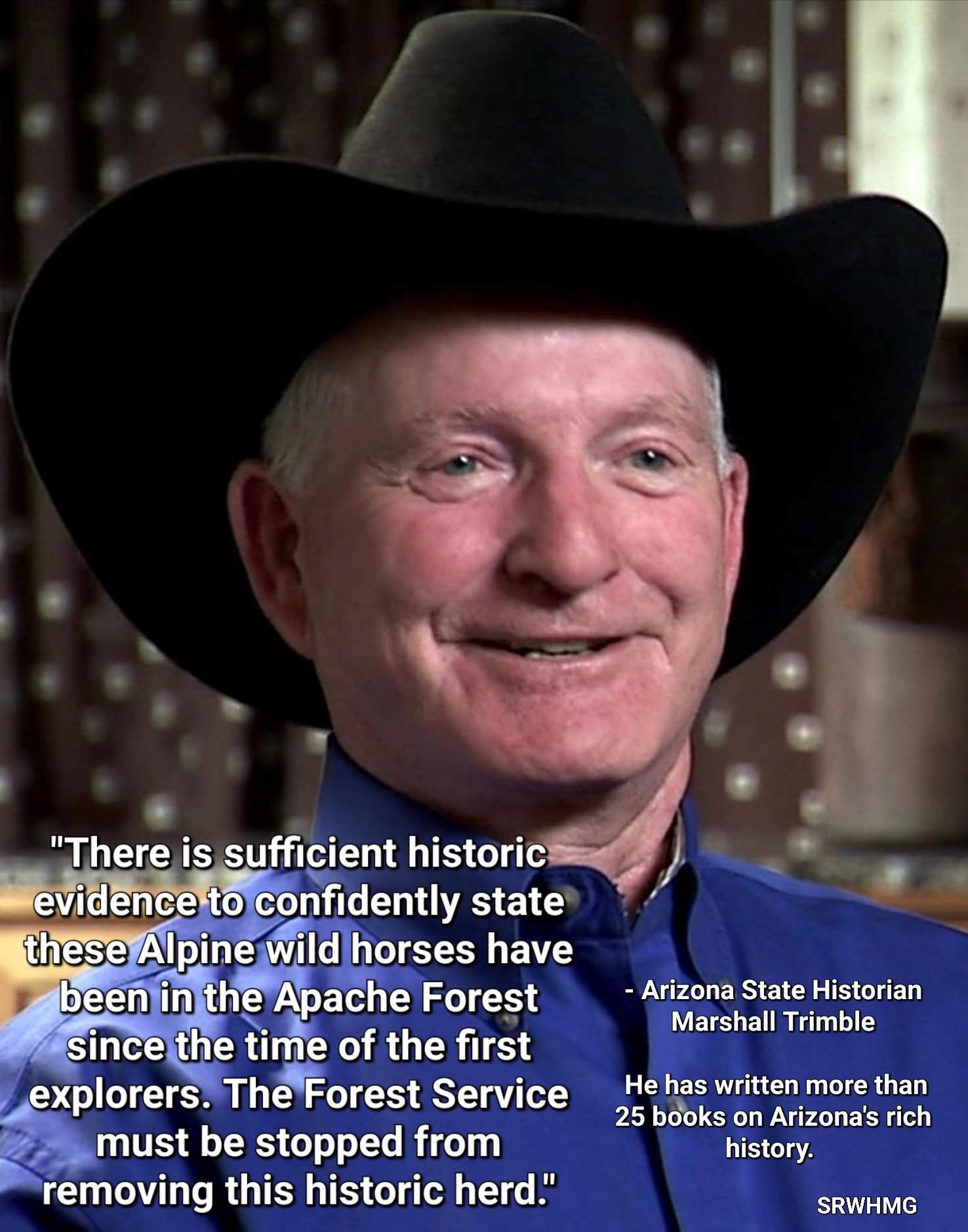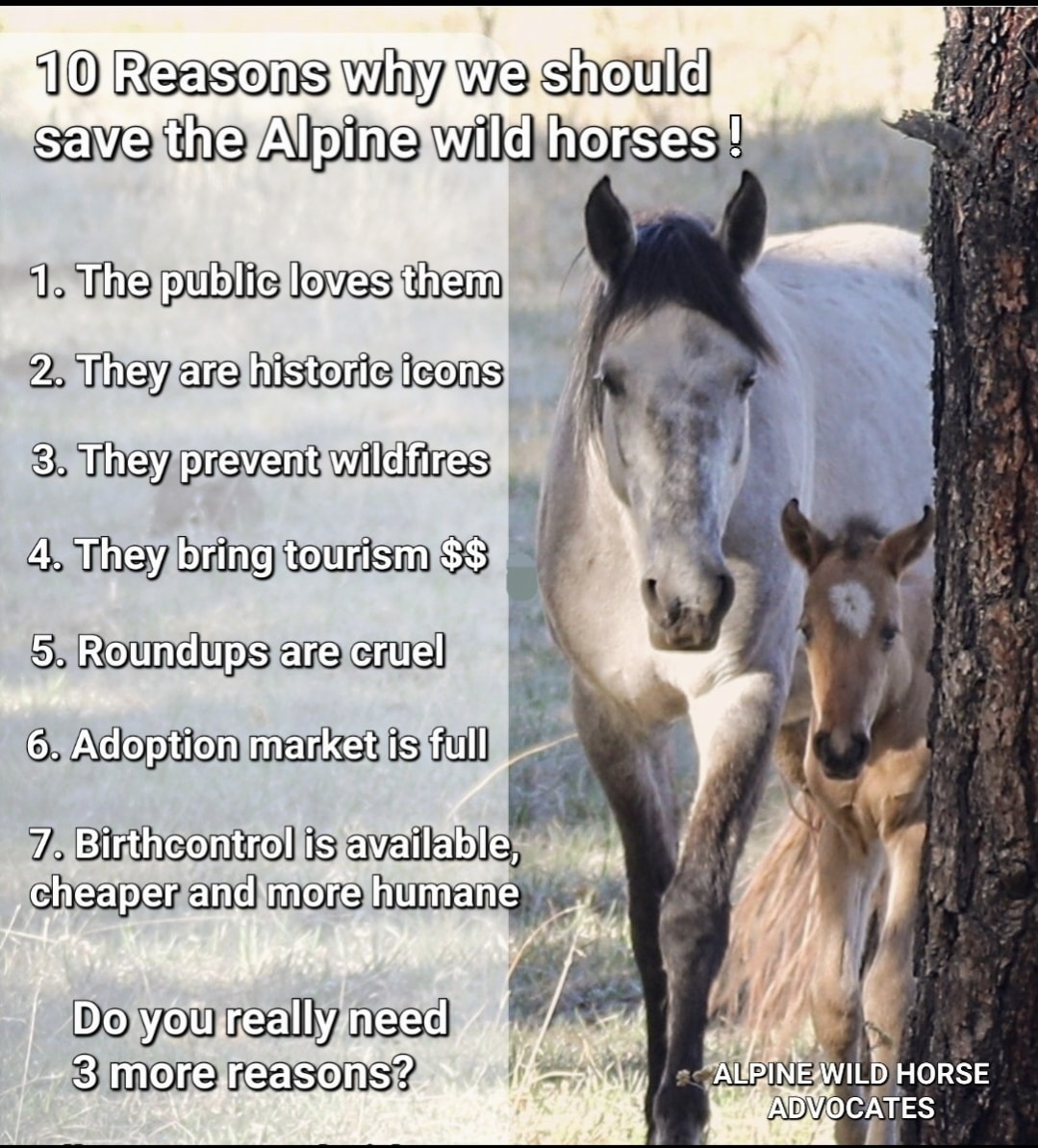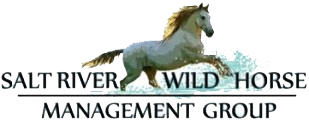
Breaking: Judge denies motion to protect Alpine wild horses from potential slaughter.
July 30th

Apache Sitegreaves National Forest, Alpine, Arizona (July 30th, 2022). The Salt River Wild Horse Management Group (SRWHMG) is outraged at a decision made yesterday by U.S. District Judge Steven Logan. This decision will allow the Forest Service to annihilate the entire Alpine wild horse herd in Northern Arizona.
The Judge stated: “The Wild Horse Act of 1971, provides that wild horses ‘are to be considered in the area where presently found, as an integral part of the natural system of the public lands,’” However, according to Logan, the 1971 act established, at that time, areas where the government must maintain and nurture wild horses. Horses that manifest outside of those areas should be considered unauthorized livestock.”
The Salt River Wild Horse Management Group (SRWHMG) stated that they feel it is gross neglect of historic evidence and an injustice to the people of Arizona who love wild horses. The assertion by the Forest Service that they are “unauthorized livestock” seems not likely, seeing as how many historic newspaper articles mention these very horses in the Apache Forest since the 1800’s, they wrote with pictures of historic articles, found in the library of congress.
“The very fact that the Forest Service did not count and assign these wild horses a protected area (territory) in 1971, cannot be taken as actual evidence that they were not there. There are many eye-witnesses who can testify to their continued existence, including Arizona’s official state historian Marshall Trimble who saw them there himself in 1971”, continued the wild horse management group.
Historian Marshall Trimble has written 25 books on Arizona history, and states: “the Alpine wild horses, who live around the Coronado trail, are most likely descendants of the horses left behind by Francisco Vasquez de Coronado in 1540, therefore the Forest Service must be stopped from removing this important piece of Arizona history.
“They are completely cheating the public of Arizona who loves and cherishes wild horses as part of our historic heritage ” States Simone Netherlands, president of the group that manages the Salt River wild horses, “the Forest Service did not wish to protect them in 1971 and therefore did not give them a protected area and therefore the result today is that they can say they are not protected! It’s a self-fulfilled prophecy by the Apache Sitegreaves Forest Service!”

Some of the historic articles shockingly show that before the protection act was passed in 1971, the Forest Service was organizing shooting parties to exterminate these wild horses, and offered 5 1/2 cents per pound for horses delivered at the railroad in the Apache Forest. “Therefore it is highly questionable, that the Forest Service was very eager to give these horses a protected area in 1971”, states Destini Rhone, a volunteer who helped with the historic research.
Recently hundreds of cattle have been released in the same area the Alpine wild horses live in. The Forest Service in their press release confirmed that they want to make more forage available for cattle, which begs the question if their claims of concern for the environment are sincere. (Cattle do much more damage to the environment than horses do)
However, with this court decision, the Forest service can go ahead and remove and sell the beloved Alpine wild horses at public auction. They have already captured 18 of them. This means these loving family bands could end up in very bad places, like slaughter plants.
The Salt River wild horses found themselves in exactly this same predicament in 2015, but more humane solutions were found through state legislation. “Humane management of wild horses is available, it is more cost effective and more humane, says Netherlands, as we proved by reducing the population of the Salt River wild horses humanely. This is better for the public, more cost effective for the Forest Service and more humane for the horses.”

The Salt River wild horse management group is calling on the public and elected officials to stand up for this herd, before it is too late.
To help the Alpine wild horses you can email and call region 3 Supervisor Michiko Martin at
Email and call your Senators:
Mark Kelly:
- 602-671-7901 / Tucson Office: 520-475-5177
US Senator Krysten Sinema
as well as Governor Doug Ducey
- Phone: 602-542-4331
